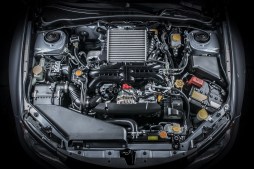New vs. Used Cars: Tips for Making an Informed Decision Based on Your Budget
Deciding between a new or used car can be a daunting task, especially when you’re trying to stick to a budget. Both options have their pros and cons, making it essential to weigh them carefully before making your purchase. This guide will help you navigate the decision-making process so you can choose the right vehicle that meets your financial needs and lifestyle.
Understanding New Cars
New cars come with the latest technology, warranties, and features that often provide a better overall driving experience. When you buy a new car, you’re getting a vehicle that’s never been driven by anyone else, which can be appealing for many buyers who prioritize reliability and state-of-the-art technology. However, new cars tend to depreciate rapidly; they lose value as soon as they leave the dealership lot. If you plan on keeping your car for many years, this may not be as significant of a concern for you.

The Benefits of Buying Used Cars
On the other hand, used cars offer several advantages too. They usually come at lower price points compared to their new counterparts due to depreciation. This means that buying used can help you get more bang for your buck—often allowing you to afford higher trims or luxury brands that would otherwise be out of reach if purchased new. Additionally, many certified pre-owned programs offer warranties and inspections that ensure you’re getting a reliable vehicle.
Budget Considerations
When considering whether to buy new or used cars, budget plays an important role in your decision-making process. New vehicles typically require larger down payments and higher monthly payments than used cars because of their elevated price tags. It’s also worth factoring in insurance costs; newer models may carry higher premiums due to their value while older models might see savings in this area.
Long-Term Ownership vs Short-Term Investment
Another factor in choosing between new vs used is how long you plan on keeping the vehicle. If you’re looking for something with longevity where you’ll enjoy its features for years without worrying about extensive repairs—new could be ideal given its warranty coverage and reliability track record at first glance. Conversely, if you’re seeking short-term use or looking at reselling within several years’ time frame then opting for quality pre-owned might serve better financially since depreciation already occurred.
Making Your Final Decision
Ultimately both options have merits depending on personal preferences like how much money can comfortably go toward monthly payment plans versus long-term investments into machinery upkeep over those years ahead. Don’t forget about test driving different models too: nothing beats experiencing firsthand what feels right behind the wheel. Whichever route suits best—new or gently-used—it’s best approached thoughtfully after assessing all factors involved in each choice available today.
In conclusion, deciding whether to buy a new or used car comes down to your individual situation regarding budgetary constraints and personal preferences for features versus expenses incurred over time periods owned. Take your time weighing these considerations carefully until comfortable enough with whichever path leads towards satisfying results upon purchase.
This text was generated using a large language model, and select text has been reviewed and moderated for purposes such as readability.











